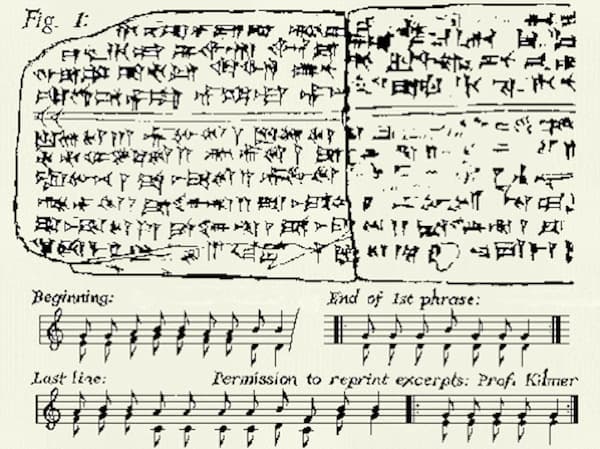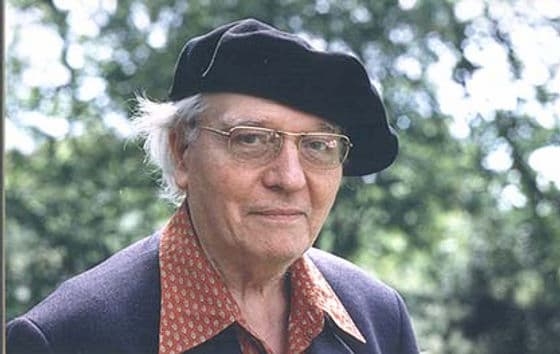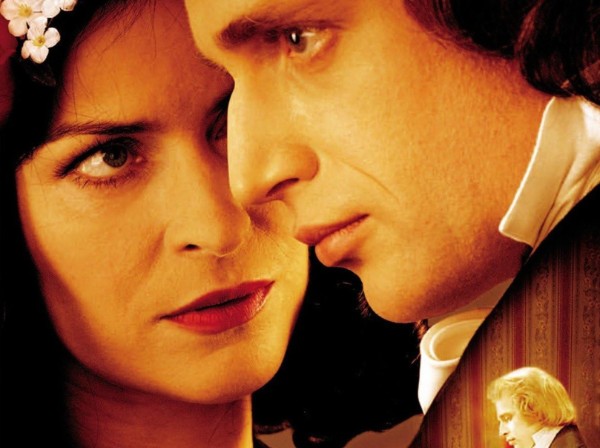Music is part of our lives in such a way that we tend to forget that it did not exist forever. At least in the human mind. As much as there is music in nature, its structure and organisation are a human invention. How did music come to be, then? What were the reasons for its creation, and what were some of the first forms of music? These are questions which have kept researchers, historians and musicologists busy for decades, and if their answers are yet to be definite, let’s have a look at what they could potentially be.
The Oldest Known Melody (Hurrian Hymn no.6 – c.1400 B.C.)
Rhythm is, of course, the foundation of all music, and it is no surprise that it came as the first form of organised sounds. Accidentally perhaps. Naturally, mankind has been drawn to percussive sounds through hitting and stomping. In fact, drumming is the only common language between all cultures, regardless of their history, and is still to this day understandable by all. If the world has evolved in different directions when it comes to approaching music, there is one element common to all, which is the presence of some sort of drumming or percussion. Some cultures have put the accent on it more than others — in African countries or around the Indian subcontinent for instance. It is inherent to human nature, and in fact, babies and children will react to many forms of drumming almost naturally as a first way of communicating. It is often their intro to music.

© openculture.com
A lot of musical devices have evolved from being the first mediums of communication and then tools to create music. Drums and winds, for instance, have been used by all cultures to communicate from far away and pass essential messages. They were initially functional rather than artistic. Other musical instruments have been invented with the sole intention of creating music, and coincidentally, they often are the ones which project sounds the least — plucked strings, for instance, are well-known for having a small volume spread, and their intention has almost always been to entertain rather than warn or scare for instance.

Olivier Messiaen
If the origins of music are unclear, there have been many theories as to how it would have originated. An evolution of speech, a sexual selection, a long-distance communication system, a method for divine communication, a labour organisation system or even a medium for frightening off predators and enemies are all theories and starting points. Throughout the centuries, archaeologists have found instruments made of bones and clay tablets with musical instructions. The 14th century BCE Hurrian Hymn No. 6 is considered by many historians as the oldest melody in existence. However, as much as there has been research done on the origins of music, no consensus has been found and scientists as well as ethnomusicologists still discuss the topic. Many cultures associate the creation of music with mythical origins — for instance, the muses in Ancient Greek mythology — and its development has been tied to religion, spirituality and mysticism.
John Coltrane: Impressions
Almost since its creation, science has shown that music is present in nature, and that it obeys strict laws, independent from the ones created by human beings. This has been demonstrated in the earliest forms of music in Greece for instance, and some of these theories are still applicable to this day. In fact, much of Western music has been developed on these founding principles — and it is only after a few centuries of development that composers looked at breaking these rules. For instance, modal music is based on concepts developed by the greatest minds of ancient Greece. From Miles Davis and John Coltrane to Erik Satie and Olivier Messiaen, the Greek influence has and is still present. This is only one of the examples of how little has changed and as much as how a lot has changed. If it is still unsure where music actually comes from, the multiple locations of its earliest forms have demonstrated that it was a necessity and that sooner or later, music had to be created.
For more of the best in classical music, sign up for our E-Newsletter

